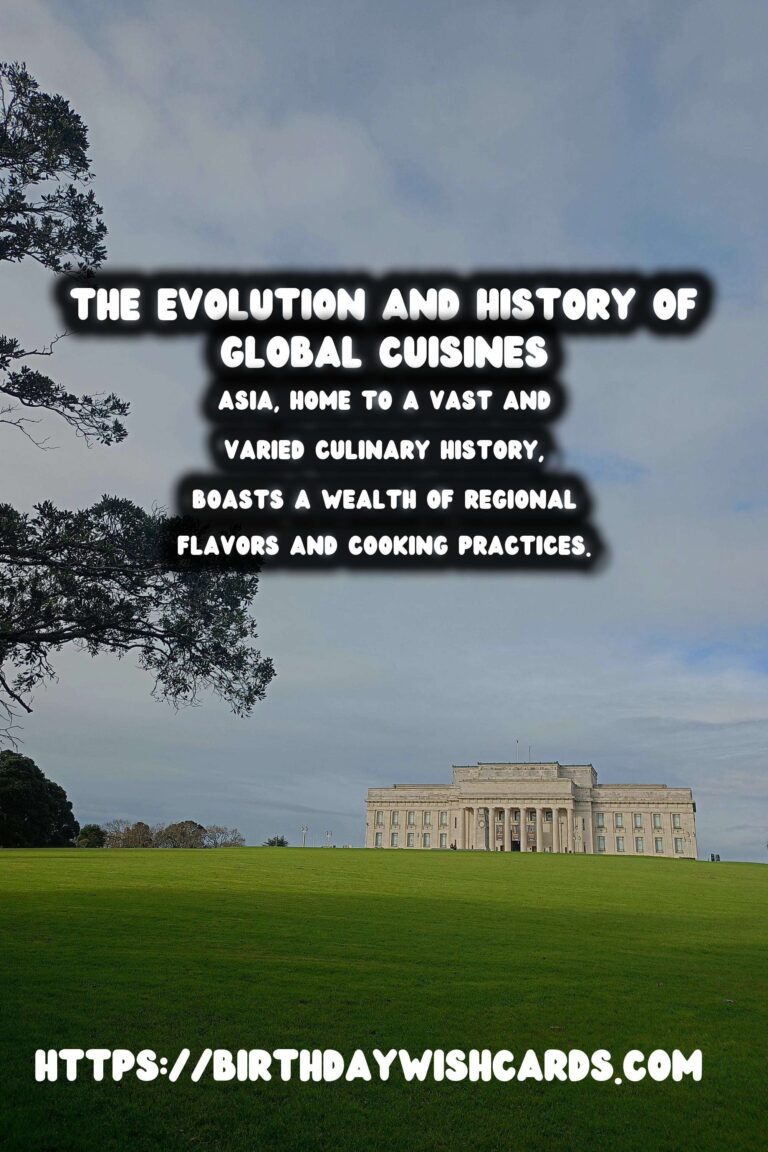
Culinary Anthropology explores the intricate tapestry of human history through the lens of food. As cultures have evolved, so have their cuisines, reflecting wider social, economic, and political changes. This field of study reveals how interconnected our world truly is, as the exchange of culinary practices has played a crucial role in shaping societies across the globe.
The Foundations of Culinary Anthropology
Culinary anthropology examines how food habits are influenced by cultural practices, religious beliefs, geographic conditions, and historical events. It prioritizes understanding the human aspect of food, exploring how various cuisines have developed and adapted through time.
In ancient civilizations such as Egypt, Greece, and China, food was not merely a source of sustenance but also a marker of social status and an integral part of religious and cultural rituals. The ancient Silk Road, an extensive network of trade routes, facilitated the exchange of spices, grains, and culinary recipes, illustrating how trade and exploration expanded palates and broadened culinary repertoires.
A Journey Through Global Cuisines
Each region of the world contributes uniquely to the global culinary landscape. From Asia’s rich and diverse flavors to Europe’s age-old recipes, ancient culinary traditions continue to influence modern-day dining experiences.
Asian Flavors Rich with History
Asia, home to a vast and varied culinary history, boasts a wealth of regional flavors and cooking practices. In India, the use of spices has been integral to cooking for millennia, with masalas and curries showcasing the artistry of spice blending. Chinese cuisine, one of the oldest in the world, emphasizes balance and harmony, reflected in its practice of five flavors: sweet, sour, bitter, hot, and salty.
Japanese cuisine, recognized for its simplicity and precision, has grown from centuries-old farming practices and Zen Buddhist traditions. Foods like sushi and sashimi highlight the importance of fresh, seasonal ingredients, while contributing modern methods like fermentation to international culinary practices.
European Culinary Traditions
Europe’s culinary history is intertwined with its tumultuous past. From the Roman Empire’s extravagant banquets to the agricultural innovations of the Medieval period, Europe’s diverse cuisines reflect the continent’s historical shifts.
Italian cuisine, noted for its regional diversity, is deeply rooted in family traditions and the use of local ingredients. Pasta, a staple thought to originate from trade with China, showcases Italy’s ability to integrate new elements into traditional dishes. French cuisine, which became formalized during the reign of Louis XIV, set culinary standards that influenced dining throughout the Western world, elevating cooking to an art form.
The Influence of Colonization on Global Cuisine
The age of exploration and colonization significantly impacted global foodways. As European powers expanded their territories, they exchanged not only goods but also culinary elements with the New World.
The introduction of the potato and tomato from the Americas to Europe transformed European cuisine, while spices and sugar from the West Indies had lasting effects on the palate and economy of the Old World. These exchanges highlight the complex tapestry of global culinary history, emphasizing the blend of indigenous traditions with colonial influences.
Modern Culinary Anthropology
Today’s globalized world offers unprecedented access to international cuisines, yet culinary anthropology remains critical in understanding cultural identity and heritage. Food festivals and culinary tours provide opportunities to experience authentic cultural expressions, fostering appreciation and understanding among diverse populations.
In an age where fast food and convenience often overshadow traditional culinary practices, culinary anthropologists strive to preserve the historical contexts that have shaped global cuisines, advocating for a more informed and sustainable approach to food consumption.
Conclusion: The Continuing Evolution of Cuisines
As people continue to migrate and cultures intermix, global cuisines will undoubtedly evolve further. By studying the evolution of culinary traditions, we gain a deeper appreciation for the rich, shared histories that define our world. Culinary anthropology invites us to explore the many flavors of our collective past, engaging us in a dialogue that transcends borders.
Culinary Anthropology explores the intricate tapestry of human history through the lens of food. Asia, home to a vast and varied culinary history, boasts a wealth of regional flavors and cooking practices. 
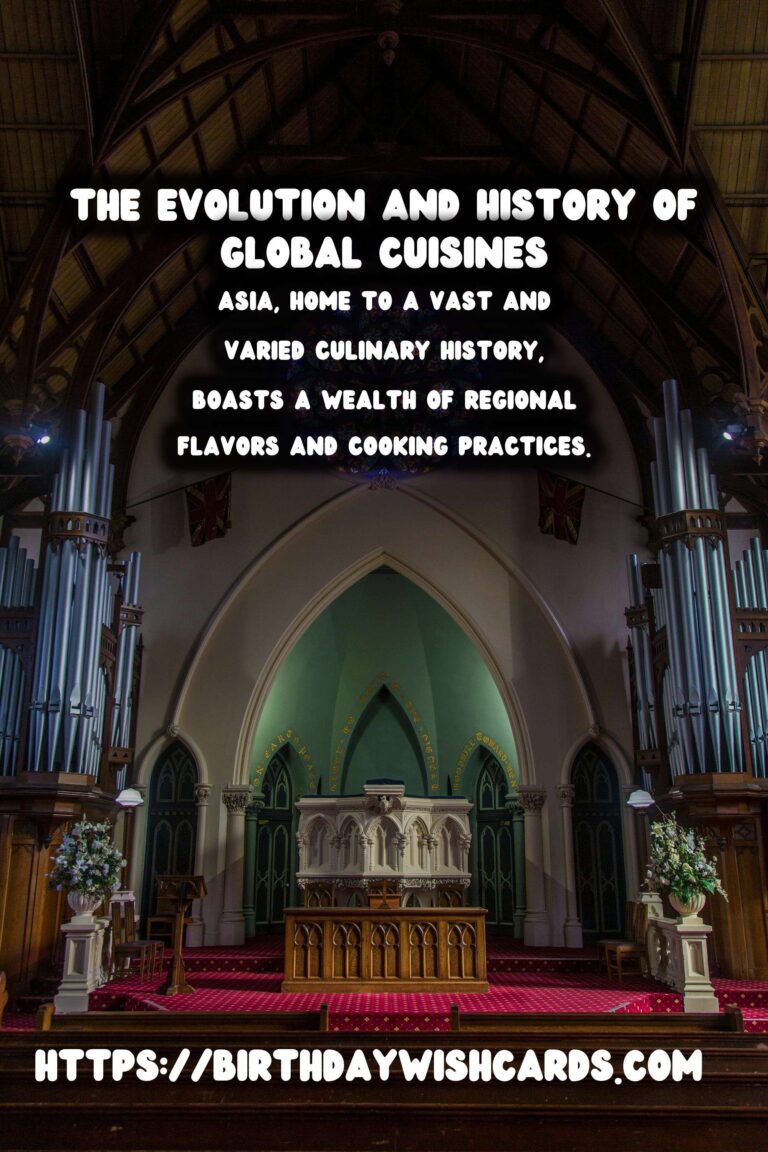
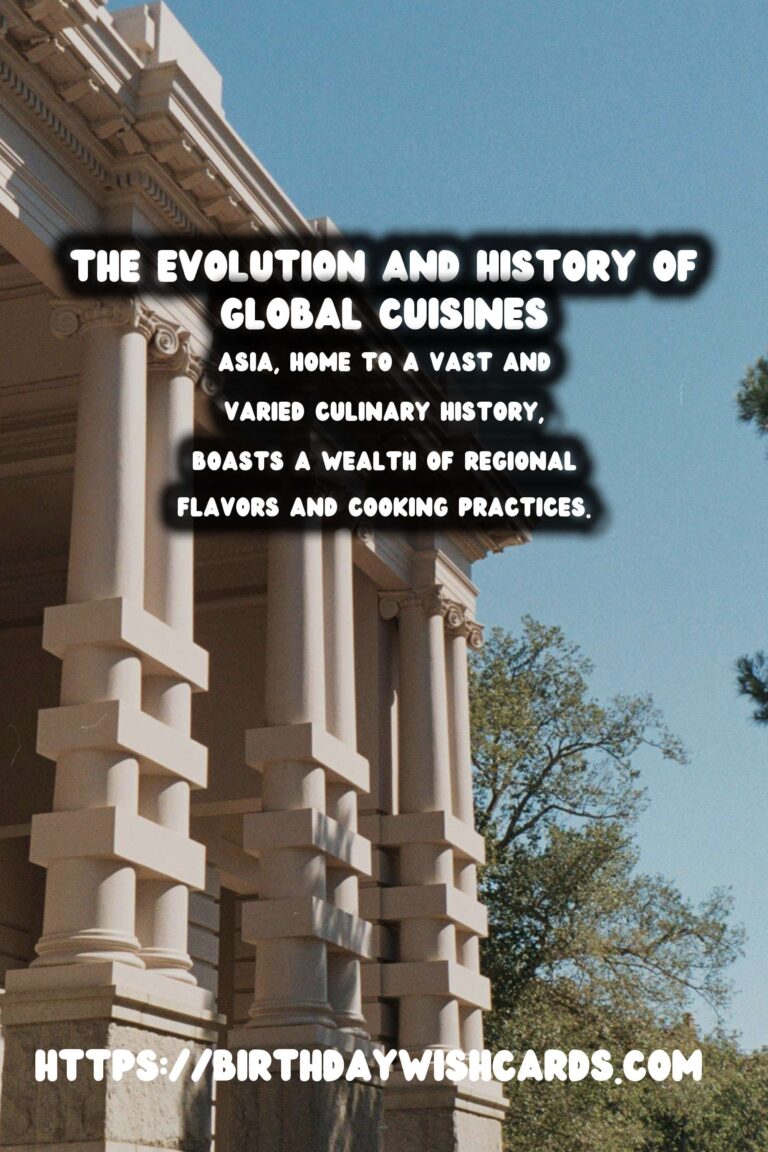
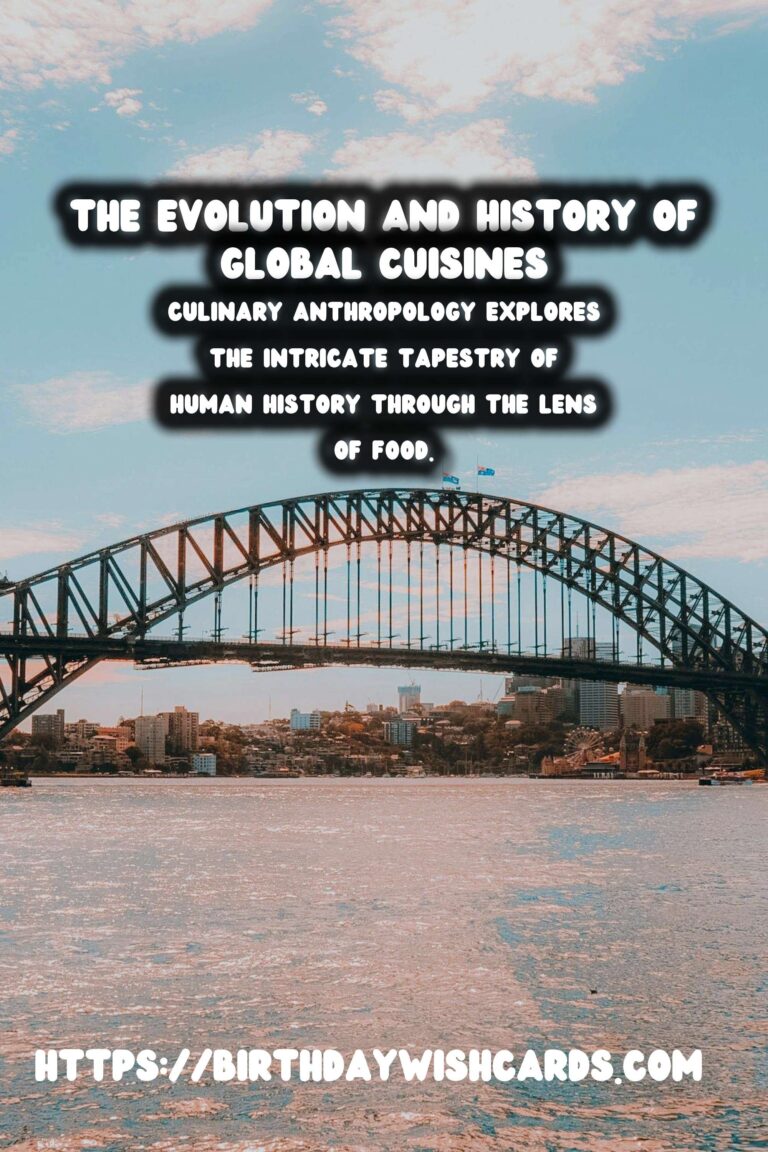
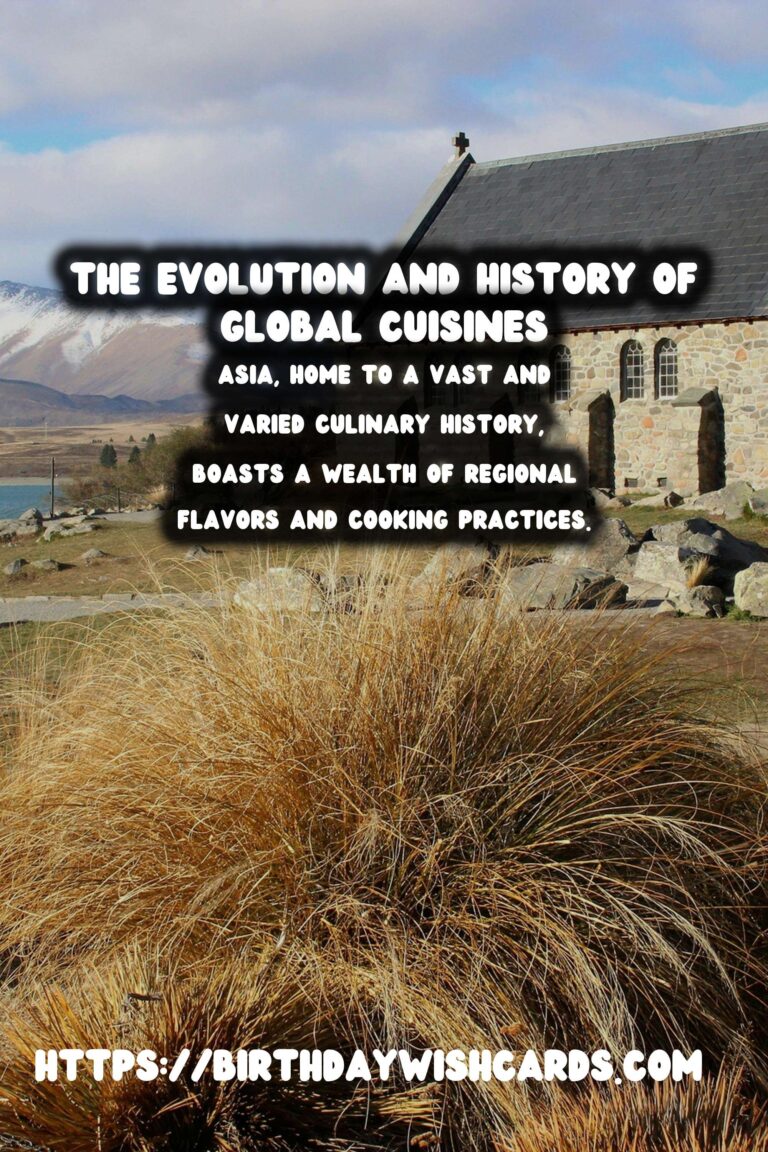
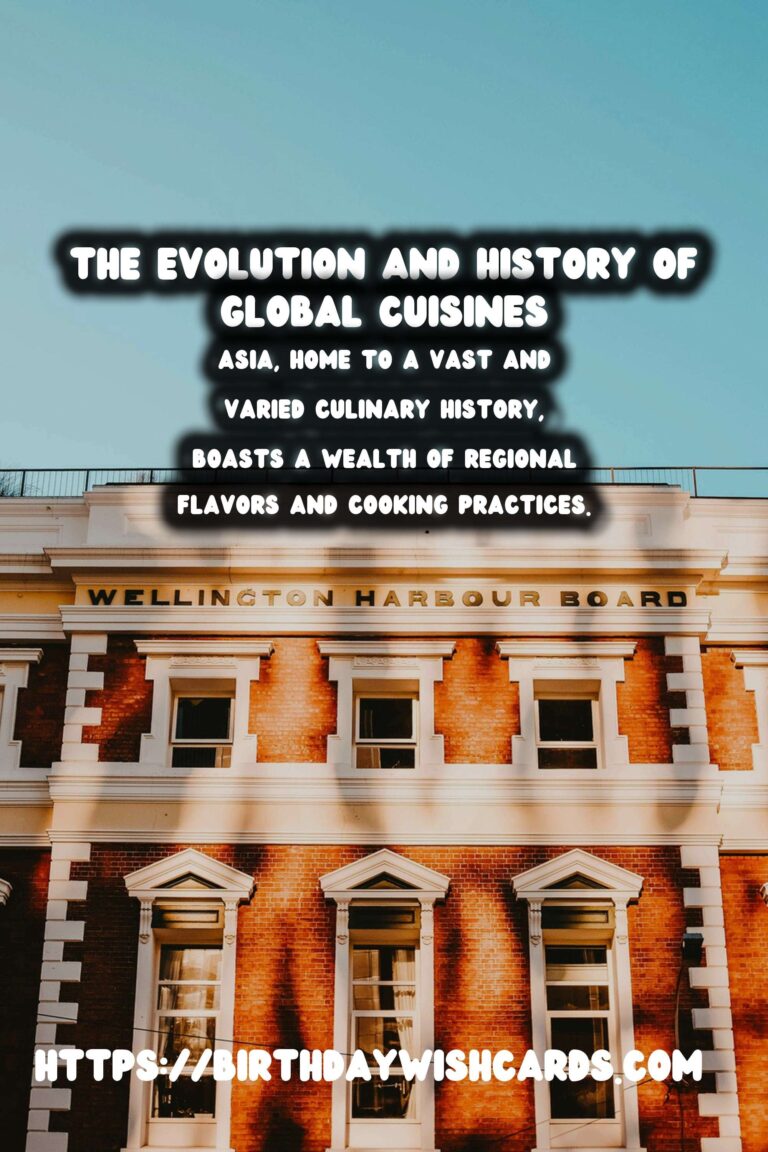
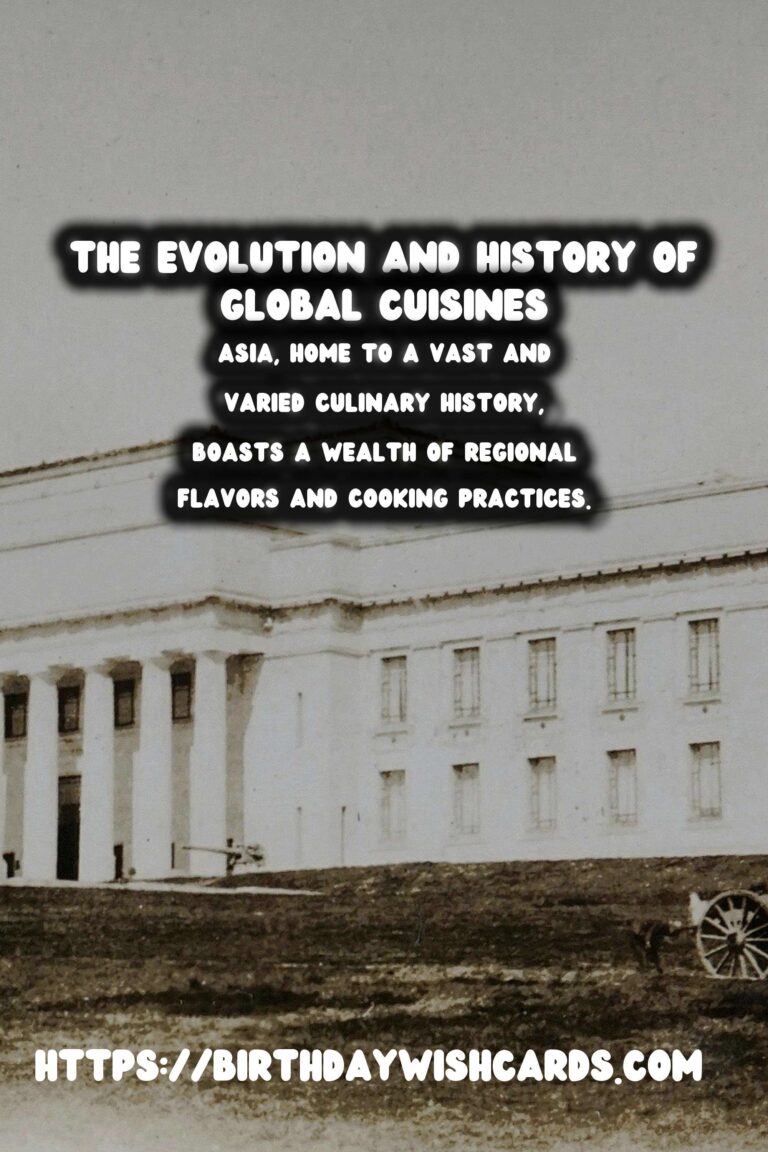
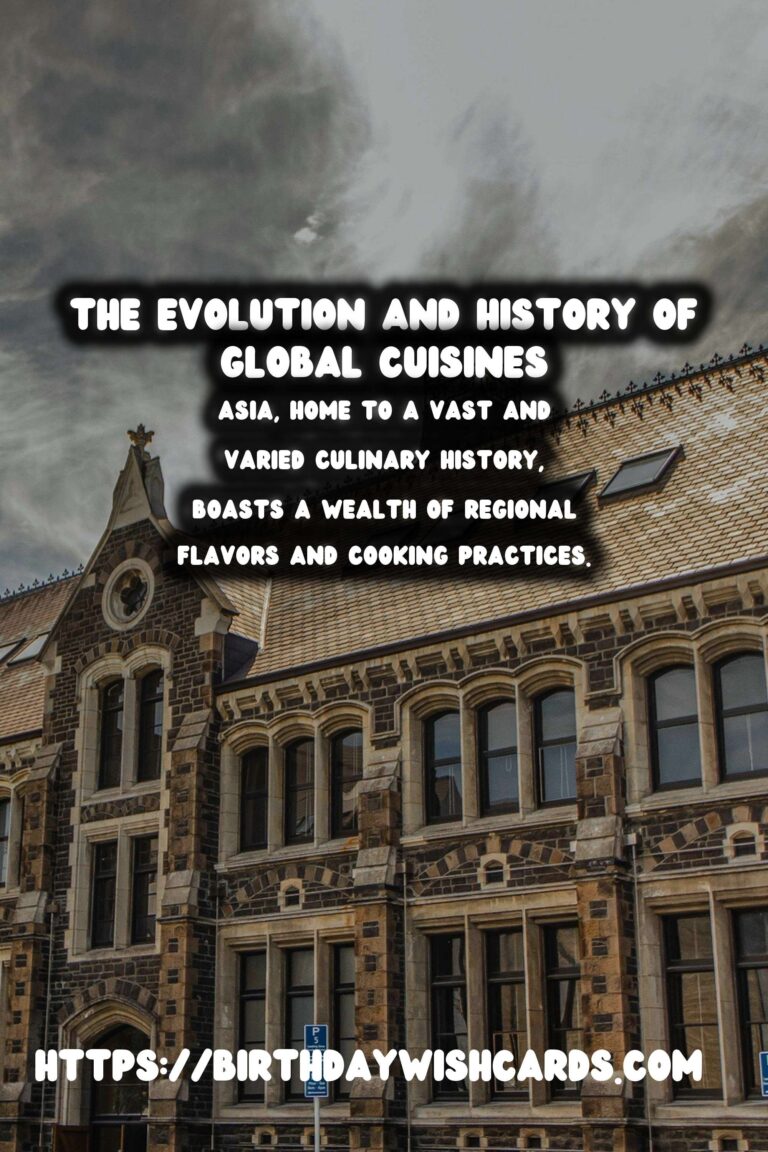
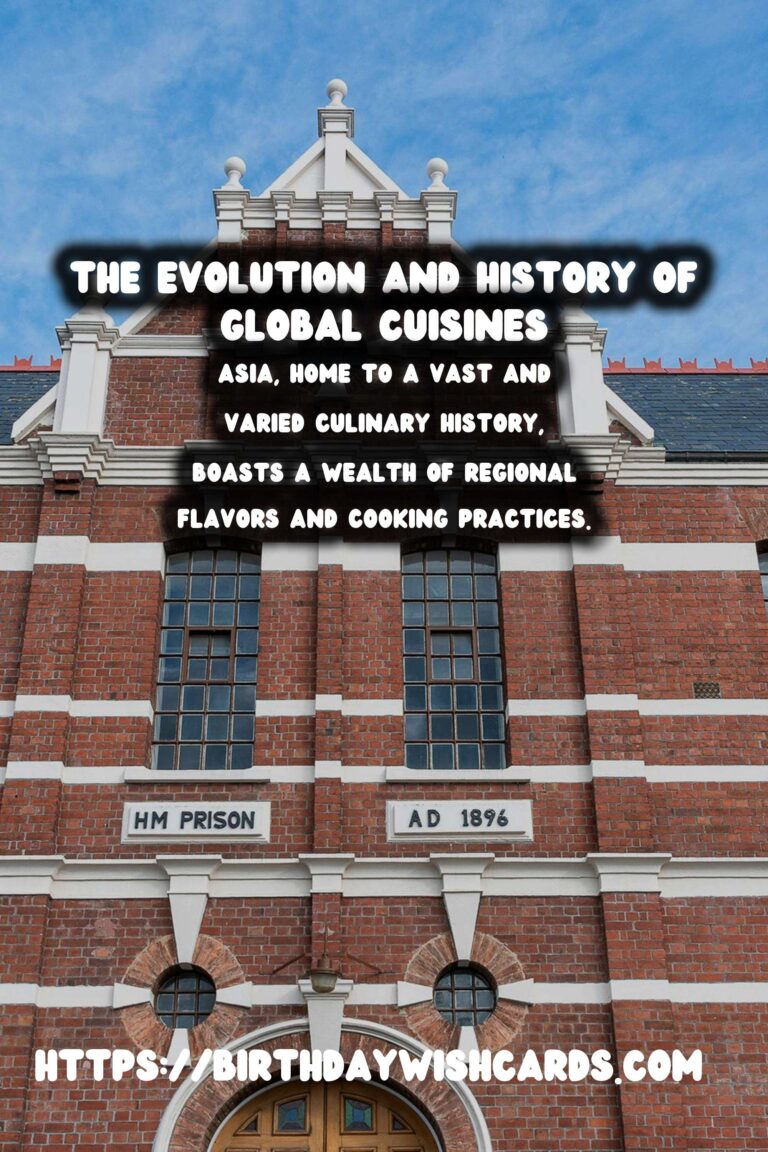
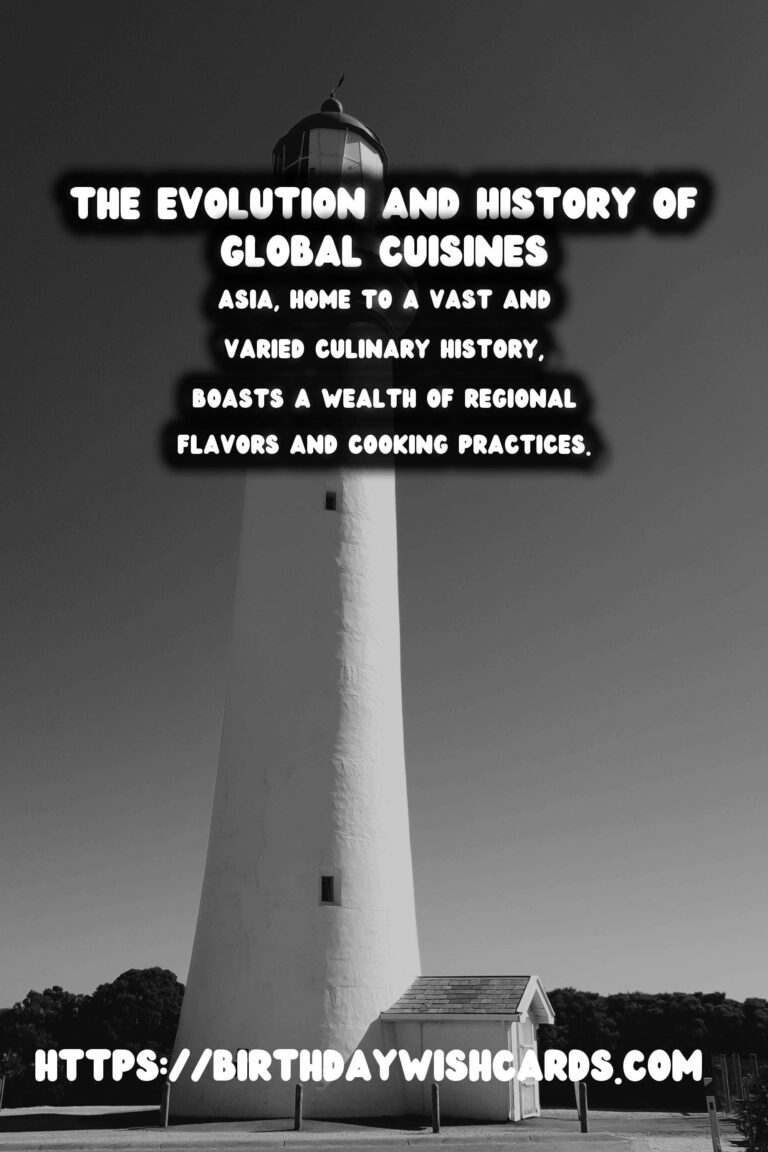
#CulinaryAnthropology #GlobalCuisines




